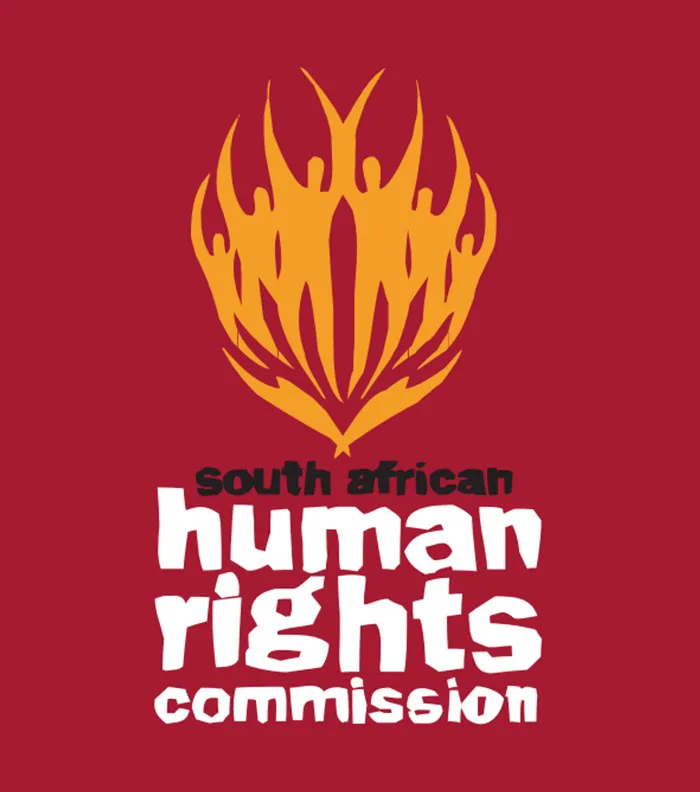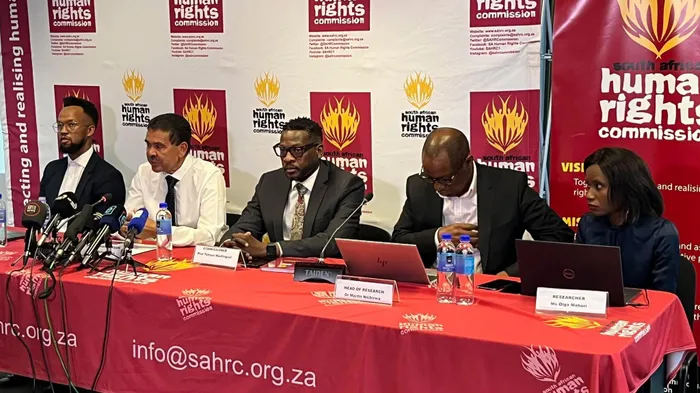
The South African Human Rights Commission reports a surge in resolved cases, with over 7500 complaints finalised during the 2024–25 financial year.
Image: File
Racism was the most common equality complaint received by the South African Human Rights Commission (SAHRC) in the 2024/25 financial year, followed by cases related to disability.
Dr Martin Nsibirwa, head of research at the SAHRC, told reporters on Tuesday that while the Commission received 2,352 complaints during the year, it resolved 7,516 cases over the same period.
The bulk of complaints dealt with socio-economic rights, including access to health care, food, water, and social security. Administrative action, equality, education, and labour relations followed.

The South African Human Rights Commission reports a surge in resolved cases, with over 7,500 complaints finalised during the 2024–25 financial year.
Image: Facebook/SAHRC
Among public entities, the Department of Home Affairs drew the most complaints.
“If there’s one government department that affects all of us, it’s Home Affairs,” Nsibirwa said. “It affects you when you are born, during your life, and when you die.”
Other departments frequently cited included Basic Education, the South African Police Service, Health, and Social Development.
At the local government level, the eThekwini Municipality attracted the most complaints, followed by Rustenburg, Polokwane, Cape Town, Victor Khanye Local Municipality, and Joe Gqabi District Municipality.
“The final two municipalities tied in complaint volume,” he said.
In the private sector, Anglo American Platinum was the most complained-about entity, followed by Eskom, Legal Aid South Africa, former Democratic Alliance MP Renaldo Gouws, and landlords.
Beyond complaints, the Commission said it undertook 125 initiatives, participated in 21 legal matters, and monitored 1394 facilities across 15 areas.
In terms of advocacy and promotion, it reported an extraordinary 301,080 initiatives.
“It’s very difficult to find another entity that has done that kind of work. But we can say, of course, it’s because we’ve got a footprint across the whole country,” Nsibirwa said.
Most complainants were between the ages of 41 and 50, with few under 17 or over 80. By race, 79% were Black African, 11% were white, and the remainder were coloured.
Sixty-six percent of complaints came from men.
“Some of these disparities may also relate to economics – such as the ability to access our facilities,” Nsibirwa said.
The majority of complaints, 65%, originated in peri-urban areas. Urban centres made up 35%, and rural areas only 0.2%.
“That is a disconcerting issue for us at the Commission,” Nsibirwa noted.
Cape Times